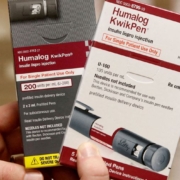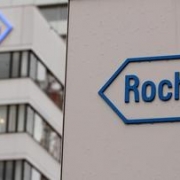The Arkansas attorney general on May 11 accused drugmakers and pharmacy benefit managers of colluding to drive up the price of insulin drugs, the latest in a series of lawsuits to take aim at skyrocketing costs for the life-sustaining medicine.
The U.S. Food and Drug Administration approved an oral treatment from Roche Holding AG and PTC Therapeutics Inc. for spinal muscular atrophy in adults and children two months and above.
Novo Nordisk’s new diabetes pill Rybelsus will be covered by Express Scripts Holding Co., one of the largest U.S. pharmacy benefit managers, the Danish drugmaker said on Friday.
Cigna Corp. agreed to sell the health insurer’s disability and accidental death insurance unit for company employees to New York Life Insurance Co. in a $6.3 billion deal.
Cigna introduced a plan to fully cover costs for expensive gene therapies, eliminating any out-of-pocket payments for customers.
Eli Lilly and Co. pulled ahead in a three-way race with Amgen Inc. and Teva Pharmaceutical Industries Ltd. in attracting new patients to a new class of migraine drugs, and seeks to build on that advantage by stressing that the company’s therapy can completely prevent headaches in a small percentage of patients.
The obscure advisory committees at the heart of the U.S. drug pricing debate
Breakthrough Therapy Status, Congress, CVS Health, Diabetes, Donald Trump, Drug Prices, Duchenne Muscular Dystrophy (DMD), Express Scripts Holding, FDA, Migraine, Multiple Sclerosis, Pharmacy Benefit Managers, Spinal Muscular Atrophy (SMA), UnitedHealth GroupExpectations were high during 2018 for three new migraine drugs hitting the market from Amgen Inc., Eli Lilly and Co. and Teva Pharmaceutical Industries Ltd. Priced around $7,000 each, the drugmakers called them “breakthrough” treatments designed to prevent migraines when taken year-round, and estimated that millions of patients could benefit. But a small group of medical experts who quietly advise U.S. health insurers on new drugs was not impressed, according to a private meeting held at UnitedHealth Group’s OptumRx offices in Chicago that was attended by Reuters.
Three drug-pricing controls emerge in U.S. market
Aetna, Apps, August 2018, Biosimilars, CVS Health, Department of Health and Human Services (HHS), Drug Pricing, DTC, Express Scripts Holding, FDA/Regulatory, Formularies, Issue Archives, Medicare, Medicare Part D, Sales & Marketing, Trump Administration, UnitedHealth GroupAs drug prices fall under increased scrutiny, payers and regulators are targeting some key initiatives that could change the dynamic of pharmacy benefit management over the next 12 months. These emerging trends point to potentially rougher terrain for drugmakers looking to increase market share as payers take a more active role in enforcing formularies.



